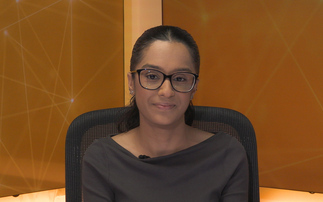Although many households rely on women to keep them afloat, there is a tendency to underinsure. Mark Jones calls for more focus.
That’s not to say that protection policies are not relevant to younger clients, because critical illnesses are not bound by age and can affect anyone. In addition, these policies will pay out on accidents, which can affect clients, old or young.
By opting for a policy that includes a guaranteed insurability option, clients can be confident that they can easily increase their cover as and when they need it. This gives them the opportunity to top up if they experience of life’s big events such as getting married, buying a property or having children.
As a nation, our life expectancy continues to grow, and it has been estimated that more than one in three people (33%) will develop cancer at some point in their lifetime. But it is not all doom and gloom. Cancer survival rates have improved significantly over the past few decades, which can only be a good thing.
Unfortunately, improved survival rates have not lessened the negative impact developing a serious illness such as cancer can have on a client’s finances. Many can find themselves financially vulnerable at a time when they are also physically and emotionally vulnerable.
In fact, cancer charity Macmillan estimates that four in five people are, on average, £570 a month worse off as a result of their diagnosis due to the fact that many find that their income falls as their expenditure is increasing in response to the new costs they suddenly have to meet.
It is for worst case scenarios such as this that critical illness cover was originally developed: to help people pay very large medical bills associated with cancer treatment and the like. These pay-outs can help to cover all the other financial commitments people will still have to meet, in the event of a major medical or health event.
In response to medical advancements, the number of illnesses that critical illness policies cover has steadily increased over the years, as the industry attempts to illustrate its commitment to offering clients the best value and most comprehensive cover.
This has been further demonstrated by the recent trend of adding ABI+ definitions, which offers a more generous definition of an illness than the standard ABI terms dictate.
The switch to ABI+ definitions benefits clients, because it allows providers to pay out more claims. In the case of certain illnesses, such as multiple sclerosis, the use of an ABI+ definitions means providers can pay claims earlier than they would on standard terms.
Partial payment options
We have also seen providers starting to offer increasingly more partial payments for people with earlier stage conditions. The advent of partial payments has meant that providers are able to exercise even more flexibility and provide much needed financial support to clients for a period of time even if their condition may not qualify for a full payment.
Many products now offer partial payments on the most common conditions such as breast and cervical cancer which make critical illness cover an even more valuable policy for women than previously.
In fact, the recent enhancements we made to our critical illness policy means a greater number of clients who get breast cancer will be eligible for financial support, because they need not require invasive treatment in order to receive a partial pay-out.
With UK wages falling in real terms as the cost of living continues to rise, across the country many have responded to the increased financial pressures in varying ways.
While some are saving less to meet their monthly outgoings, others admit to trying to spend less in a bid to reduce their monthly outgoings, with many cancelling or reviewing their insurance policies.
This is a rather short-term strategy that can have catastrophic implications for clients, especially for those who have people relying on them financially. Protection is a key financial planning tool which offers clients, male or female, peace of mind that their income will be protected if they were unable to work.
With increasing living costs and the reduction in government benefits, the financial security that protection can offer is even more important for households than ever before.
Mark Jones is head of protection at LV=










